Shirley Valerie Horn
In the summer of 1963, before my senior year in high school, I went to church camp at Johnson C Smith university in Charlotte NC. There I meet Gloria and my insides changed. My heart began to feel like never before in my life !! This was special !! She sang in the talent show and looked at me the whole time ,her words of love and desire were just for me, WOW ..That night at the dance when we danced she would put her head on my shoulder and sing in my ear. Her voice stayed in my head for many years. Young love is so intense it's full of joy, passion and the unknown, you dream, wish and speed through the day to get to the dreams at night. I realised I had a capacity for great love but life moves on. I know I want this feeling to stay in my life.
In 1982 I went to visit my friend LaVonne on a Sunday afternoon, her father wanted to go visit a friend of his, he was getting up in age and she did not want him to drive. She asked if I would go with her. We got in the car and went to northeast Washington DC. We meet an elderly couple. I sat on the couch and just waited trying not to look bored. The lady of the house served some tea and cookies, then she said her daughter was in town she went in the hall and called Shirley. I looked up and it was Shirley Horn, I had heard her music and seen some album covers but never live.You never know when a day is going to turn wonderful. She sat down at the BabyGrand and began to play and sing what a Sunday afternoon. I loved her style, her voice her way of presenting. I brought some of her albums and stared listing in the overnight, her voice could touch inside me.Life can be good.
Shirley Horn Life Love Blues Playlist
Shirley Valerie Horn was an American jazz singer and pianist. She collaborated with many jazz greats including Miles Davis, Dizzy Gillespie, Toots Thielemans, Ron Carter, Carmen McRae, Wynton Marsalis and others. She was most noted for her ability to accompany herself with nearly incomparable independence and ability on the piano while singing, something described by arranger Johnny Mandel as "like having two heads", and for her rich, lush voice, a smoky contralto, which was described by noted producer and arranger Quincy Jones as "like clothing, as she seduces you with her voice". Although she could swing as strongly as any straight-ahead jazz artist, Horn's reputation rode on her exquisite ballad work.
When Horn was 17, she was playing a solo jazz piano gig in a Washington, D.C., restaurant when an elderly man, a regular customer, came into the restaurant with a stuffed bear as tall as Horn.
"It was getting close to Christmas, and somehow I knew that teddy bear was for me," said Horn during a conversation just before Berklee's commencement weekend. "He sent a note up asking me to sing 'Melancholy Baby.'"
Horn had never sung in public, but she complied, and after the performance, the man gave Horn her first payment as a vocalist, the bear. The restaurant owner gave her a raise to keep her singing and before long, Horn was leading a band and playing frequent gigs as a vocalist and pianist.
Surviving and succeeding as a vocalist is not something that came easily for Horn, who says she was shy and quiet before stepping into the spotlight as a young musician. But it was the behavior of unruly audiences, ironically, that taught Horn how to avoid stress over performing.
"The public hardens you," she said. "When I started working in clubs, I found out people could be rude. There would be talk and laughter during your songs."
Rather than cower from such treatment, Horn gained strength from it and became more confident as a bandleader. She also learned how to overcome sexism at a time when few women led bands. "They soon found out I meant business," she said about men who gave her a hard time early in her career. "It was the way I carried myself. I didn't like stuff. I didn't take any, and I didn't give any."
Shirley Horn was born and raised in Washington, D.C.. Encouraged by her grandmother, an amateur organist, Horn began piano lessons at the age of four. Aged 12, she studied piano and composition at Howard University, later graduating from there in classical music. Horn was offered a place at the Juilliard School, but her family could not afford to send her there. Horn's early piano influences were Erroll Garner, Oscar Peterson and Ahmad Jamal, and moving away from her classical background, Horn later said that "Oscar Peterson became my Rachmaninov, and Ahmad Jamal became my Debussy." She then became enamored with the famous U Street jazz area of Washington (largely destroyed in the 1968 riots), sneaking into jazz clubs before she was of legal age.
Horn first achieved fame in 1960, through her association with Miles Davis. Davis' praise had particular resonance in two respects: because he was so highly respected as a musician, and because he rarely offered public praise for fellow musicians at that time. Horn had, though, recorded several songs with violinist Stuff Smith in 1959 both as a pianist and a singer. After her discovery by Davis, she recorded albums on different small labels in the early 1960s, eventually landing contracts with larger labels Mercury Records and Impulse Records. She was popular with jazz critics, but did not achieve significant popular success.
Quincy Jones attempted to make Horn into a pure vocalist in several recording sessions, something he later hinted may have been a mistake. Horn was also disturbed by the changes in popular music in the 1960s following the arrival of The Beatles. Largely rejecting efforts to remake her into a popular singer, she stated: "I will not stoop to conquer". From the late-1960s, she concentrated on raising her daughter Rainy with her husband, Shepherd Deering (whom she had married in 1955), and largely limited her performances to her native Washington, D.C.
In the 1980s, she returned to the limelight on Steeple Chase Records and put out a series of well-received albums. In 1986, she began recording for Verve and released "I Remember Miles ," a tribute album to Davis that won a Grammy for best jazz vocal album, in 1998. Six of Horn's albums were nominated for Grammy's.
Miles Davis made a rare appearance as a sideman on Horn's 1991 album You Won't Forget Me. Although she preferred to perform in small settings, such as her trio, she also recorded with orchestras, as on the 1992 album Here's to Life, the title song (lyrics by Phyllis Molinary, music by Artie Butler) of which became her signature song. A video documentary of Horn's life and music was released at the same time as "Here's To Life" and shared its title. At the time, arranger Johnny Mandel commented that Horn's piano skill was comparable to that of the noted jazz great Bill Evans. A follow-up was made in 2001, named You're My Thrill.
Horn worked with the same rhythm section for 25 years: Charles Ables (bass) and Steve Williams (drums). Don Heckman wrote in the Los Angeles Times (February 2, 1995) about "the importance of bassist Charles Ables and drummer Steve Williams to Horn's sound. Working with boundless subtlety, following her every spontaneous twist and turn, they were the ideal accompanists for a performer who clearly will tolerate nothing less than perfection".
Her albums Here's to Life, Light Out of Darkness (A Tribute to Ray Charles) and I Love You, Paris all reached number one on the Billboard jazz charts.
She was officially recognized by the 109th US Congress for "her many achievements and contributions to the world of jazz and American culture", and performed at The White House for several U.S. presidents. Horn was awarded an honorary Doctor of Music degree from the Berklee College of Music in 2002. Horn was nominated for nine Grammy Awards during her career, winning the Grammy Award for Best Jazz Vocal Performance at the 41st Grammy Awards for I Remember Miles, a tribute to her friend and mentor (the album's cover featuring a Miles Davis drawing of them both). She was awarded the National Endowment for the Arts Jazz Masters Award in 2005 (the highest honors that the United States bestows upon jazz musicians).
In 2004, The Kennedy Center honored Horn with a tribute and she was awarded a Jazz Master Fellowship by the National Endowment for the Arts.
"I'm not a quitter, I'm a fighter," she told The Washington Post in late 2004, a few years after diabetes forced the amputation of her right foot. "I've tried to keep things as level as possible through this whole thing -- I'm cool. I know what I have to do. I'm never going to give up the piano, I'm never going to stop singing, 'til God says, 'I called your number.' I didn't panic, because I have so much love for what I do."
Horn transitioned on October 20, 2005.
From Wikipedia & Rob Hochschild
I Remember Miles playlist
Shirley Horn - "Here's To Life"
Singer Shirley Horn Interview
Shirley Horn - Full Concert - 08/15/92 - Newport Jazz Festival (OFFICIAL)
Shirley Horn & Trio - How insensitive - Heineken Concerts 99
Shirley Horn: "Live" at the Village Vanuard (1961)




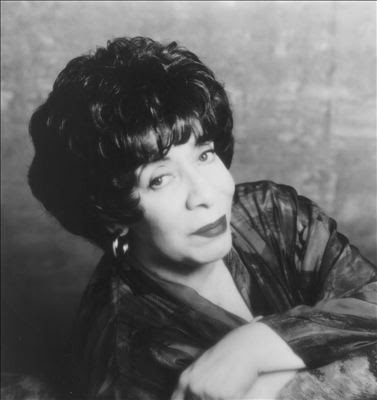
































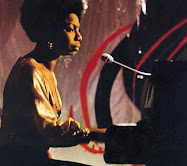

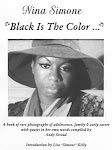

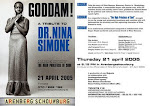

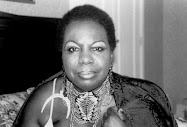






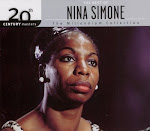



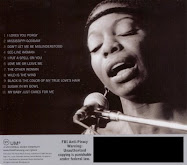
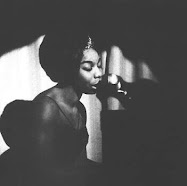

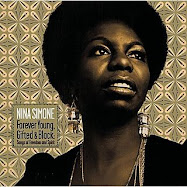









No comments:
Post a Comment